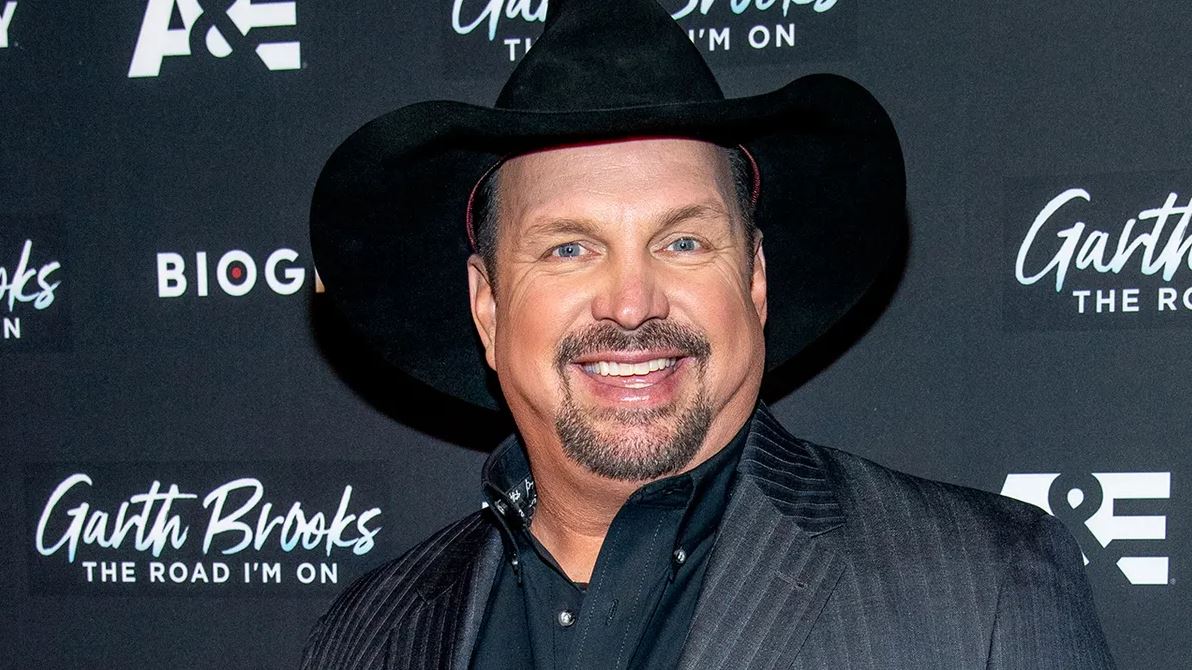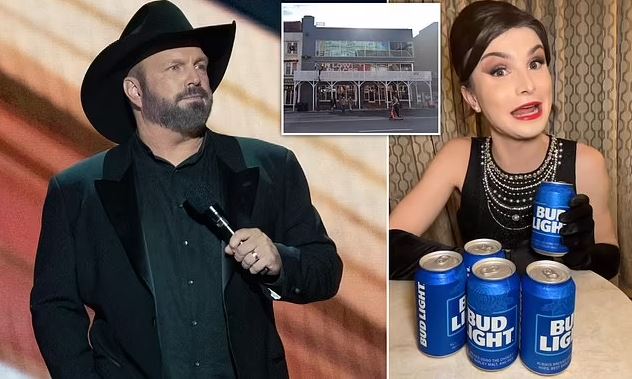Understanding the Controversy Why Garth Brooks Divides Music Fans
Garth Brooks, an iconic figure in the realm of country music, presents a fascinating case of celebrity polarisation. While his chart-topping hits and groundbreaking sales records have cemented him as a legendary artist, Brooks is not without his share of detractors. This divide among fans and critics alike makes him one of the most discussed personalities in the music industry.
Garth Brooks rose to fame in the early 1990s, bringing a fresh energy to country music that appealed to both traditional listeners and a broader, more diverse audience. His ability to blend rock elements with classic country music, coupled with an electrifying stage presence, revolutionized the genre and drew massive audiences. However, this very crossover appeal, which propelled him to stardom, also sparked the first waves of criticism. Purists argued that Brooks was diluting the authentic essence of country music, turning it into a commercial spectacle rather than preserving its traditional roots.
Moreover, Brooks’ public persona and his decisions off-stage have continually fueled controversy. His approach to digital music distribution, his stances on various social issues, and even his marketing strategies have been heavily scrutinized. Some view him as a visionary who is unafraid to challenge the status quo, while others see a figure driven by commercial success at the expense of artistic integrity.
The perception that “everyone hates Garth Brooks” is an exaggeration, yet it underscores the significant backlash he faces. It is not so much universal disdain as it is a vocal minority amplified by social media and critical commentary. This controversy is a testament to Brooks’ significant impact on the music industry—his innovations and disruptions provoke strong reactions, both positive and negative.
In exploring why Garth Brooks is such a polarizing figure, it’s essential to consider the broader implications of his career on country music and celebrity culture. His story reflects the challenges and complexities of maintaining popularity and integrity in an ever-evolving musical landscape.
1. Perceived Insincerity and Awkward Persona
1.1 Overly Sentimental Personality
Garth Brooks is often criticized for his overtly emotional demeanor, which some perceive as insincere or excessively sentimental. This aspect of his persona has been a double-edged sword. On one hand, it endears him to fans who see his emotional expressiveness as a hallmark of authenticity. On the other, it has led to public skepticism, particularly among those who view such displays as calculated attempts to garner sympathy or connect with the audience. The impact of this perception is significant, extending beyond personal opinions to influence public discourse about Brooks. Memes and social media commentary frequently target his emotional outbursts, painting them as over-the-top or disingenuous, which compounds the criticism he faces and shapes his public image as a controversial figure.
1.2 “Where are the bodies Garth?” Meme
Originating from a viral video by comedian Tom Segura, the “Where are the bodies Garth?” meme has become synonymous with trolling the country star. Segura’s humorous speculation about Brooks hiding a sinister secret behind his affable exterior caught on rapidly, echoing across various social media platforms. This meme has played a significant role in how the public perceives Brooks, turning into a running joke that often overshadows discussions about his music and philanthropy. It highlights a broader trend where celebrities’ public personas are dissected and often ridiculed in digital spaces, contributing significantly to the polarized views they elicit.
1.3 Confidence in Authenticity
Despite the backlash, Garth Brooks maintains a steadfast belief in his genuineness. He often addresses criticism head-on, expressing that his emotional openness and sincerity are core aspects of who he is, both as an artist and a person. Brooks argues that staying true to oneself is paramount, even if it leads to misunderstanding or mockery. This confidence in his authenticity not only defines his approach to public life but also serves as his defense against the cynicism and scrutiny he faces. By embracing his identity unapologetically, Brooks hopes to eventually change the narrative and gain recognition for his genuine intentions.
2. Controversy in Music and Business Decisions
2.1 Streaming and Digital Sales Stance
Garth Brooks has been vocal about his disdain for certain digital music platforms, famously calling YouTube “the devil” and opting not to distribute his music on popular services like Spotify and iTunes. His argument centers on the belief that these platforms do not compensate artists fairly, reflecting a broader concern among musicians about revenue in the streaming era. This stance has resulted in mixed reactions. While some applaud his commitment to ensuring artists are fairly paid, others see it as an inconvenient stance that limits access to his music, potentially alienating younger audiences who predominantly consume music digitally. This has certainly impacted his image, painting him as both a crusader for artists’ rights and an out-of-touch musician resistant to industry changes.
2.2 Controversial Music Videos
“The Thunder Rolls” music video is particularly noteworthy in Brooks’ career for the controversy it stirred. Featuring themes of infidelity and domestic violence, the video was banned by networks like TNN and CMT, who deemed it too provocative for television. This incident not only sparked debate about censorship and the role of music videos in storytelling but also added to Brooks’ reputation as a controversial figure who pushes the boundaries of traditional country music themes.
2.3 Super Bowl National Anthem Incident
Garth Brooks’ involvement in a significant controversy during the 1993 Super Bowl further complicated his public image. Brooks threatened to withdraw from performing the national anthem minutes before the event, demanding that a video addressing racial injustice, which he wanted aired before his performance, be shown. The ensuing standoff was highly publicized, resulting in a last-minute compromise to show the video later. This incident not only highlighted his willingness to leverage his fame for social issues but also led to criticism over his methods and timing, reinforcing his image as a divisive figure in the music industry.
3. Impact on Country Music Genre
3.1 Transformation of Country Music
Garth Brooks is credited with revolutionizing the country music genre by blending it with elements of rock and pop, a style often referred to as “town and country.” This innovative approach not only expanded the audience base by attracting fans from different musical backgrounds but also ignited a significant shift in the industry’s production and sound. However, this transformation was not universally welcomed. Traditionalists within the country music community felt that these changes compromised the genre’s authenticity, arguing that the roots of country music were being diluted for commercial gain. Despite these criticisms, Brooks’ style played a crucial role in reshaping country music into a more mainstream, commercially viable genre.
3.2 Massive Commercial Success
During the 1990s, Garth Brooks emerged as one of the most successful artists in music history. His albums topped the charts and broke sales records, leading him to become the best-selling solo albums artist in the USA, surpassing even Elvis Presley. However, his extraordinary success led to envy and resentment within the industry. Some peers viewed his massive popularity and the media attention he garnered with skepticism, interpreting his commercial strategies as overly ambitious or inauthentic. Despite these perceptions, Brooks’ success helped elevate the profile of country music globally, proving its potential to compete with other major music genres in the international arena.
3.3 Influence on Live Performances
Garth Brooks significantly impacted how live country music performances were staged. His concerts were known for their dynamic energy and theatrical elements, often resembling rock concerts more than traditional country shows. This shift set a new standard for performances within the genre, compelling other artists to enhance their own live shows to meet audience expectations that Brooks had redefined. His approach not only transformed the concert experience for country music fans but also influenced the broader music industry’s approach to live performances, pushing the boundaries of what was expected at country music shows.
4. Personal Life Controversies
4.1 Divorce and Remarriage
Garth Brooks’ personal life has been as much a topic of discussion as his music, particularly his divorce from his first wife, Sandy Mahl, and his subsequent marriage to fellow country star Trisha Yearwood. This sequence of events drew significant media attention and public scrutiny. The public’s reaction was mixed, with some of his fans feeling betrayed or disappointed by the end of his first marriage, while others supported his right to personal happiness. His marriage to Yearwood, who was also previously married, was seen by some as controversial due to the timing and circumstances surrounding their relationships.
4.2 Chris Gaines Project
In 1999, Garth Brooks introduced an alter ego, Chris Gaines, a rock-and-roll musician which was a stark departure from his country music persona. This project involved releasing an album, “Garth Brooks in… The Life of Chris Gaines,” which served as a pre-soundtrack for an unreleased movie project. The alter ego was met with confusion and often ridicule from both fans and critics. The project was criticized for its perceived pretentiousness and lack of authenticity, marking one of the most bewildering ventures in his career. Despite its commercial failure relative to his other albums, the Chris Gaines experiment is a testament to Brooks’ willingness to experiment and push creative boundaries, even at the risk of alienating his audience.
5. Broader Context of Country Music Polarization
5.1 Political Divide
Country music has long been associated with conservative values, and this political alignment often influences the genre’s audience and artists. Garth Brooks, despite his broad appeal, has not been immune to the implications of this association. While Brooks himself has typically steered clear of overt political endorsements, the inherent conservative leanings within the genre have occasionally cast a shadow over his career. This is particularly evident in instances where he has taken a stand on issues that might diverge from mainstream country music’s conservative base, such as his advocacy for social justice or his decisions around performance protests. These actions reflect on Brooks and contribute to the polarization around his persona, highlighting the challenges artists face when their personal beliefs or actions intersect with the expected norms of their genre’s cultural landscape.
5.2 Changing Themes
In recent years, country music has seen a noticeable shift from predominantly political or socially conservative themes to more personal and introspective subject matter. This transition is part of a broader trend within the music industry but is particularly significant in country music, where traditional themes have long dominated. For Garth Brooks, this shift has allowed a broader exploration of themes in his music, ranging from personal growth to complex emotional narratives, thereby resonating with a wider audience and mitigating some of the polarized reception he has received. This evolution in thematic focus reflects changes in the societal landscape and audience expectations, marking a move towards more universally relatable content that transcends political divisions.
5.3 Diverse Perspectives
The introduction of diverse perspectives within country music, particularly regarding social issues and LGBTQ+ representation, marks a significant change in the genre. Artists like Tyler Childers are at the forefront of this shift, challenging traditional narratives and incorporating broader social themes into their music. This movement towards inclusivity and social consciousness provides a contrast to the genre’s conservative roots and reshapes its cultural and social identity. For Garth Brooks, who has historically been seen as a bridge between traditional and modern country music, the inclusion of diverse perspectives among his contemporaries further complicates his position within the genre. It both aligns him with progressive elements and highlights the continuing divide among fans and within the industry.
FAQ Section
FAQ 1: Why does everyone hate Garth Brooks?
Not everyone hates Garth Brooks, but he is a polarizing figure largely due to his massive success, perceived insincerity, and controversial decisions. His deviation from traditional country music norms and his embrace of pop elements have alienated some purists, while his public persona and business choices have sparked debate and criticism.
FAQ 2: What are the main Garth Brooks controversies?
Garth Brooks has faced several controversies, including his stance against streaming platforms, the content of his music videos like “The Thunder Rolls,” his decision to threaten to not perform the national anthem at the Super Bowl, and his involvement in the Chris Gaines project. Each of these instances has contributed to his complex public image.
FAQ 3: What is the “Where are the bodies Garth?” meme about?
The “Where are the bodies Garth?” meme is a satirical query posed by comedians and the public, poking fun at Brooks’ intense and sometimes eerie demeanor in his social media posts. It represents a broader trend of online trolling and plays into the narrative of his polarizing public persona.
FAQ 4: How has Garth Brooks impacted country music?
Garth Brooks has significantly impacted country music by blending it with rock and pop influences, transforming its traditional sound and broadening its appeal. His dynamic stage presence and marketing strategies have also raised the bar for live performances and overall production values in the genre.
FAQ 5: Why do some people criticize Garth Brooks’ personality?
Some people criticize Garth Brooks for what they perceive as an overly sentimental and insincere personality. His public displays of emotion and the confident manner in which he addresses his authenticity often draw skepticism and ridicule, contributing to the mixed perceptions of his character.
Garth Brooks’ status as a polarizing figure in the music industry is rooted in a complex interplay of personal and professional factors that have shaped his career and public perception. His groundbreaking influence on country music, marked by a fusion of genres and a dynamic performance style, has brought him immense success but also significant scrutiny. Brooks’ departure from traditional country sounds to incorporate rock and pop elements alienated some purists, while his massive commercial achievements invoked jealousy among peers, highlighting the competitive tensions within the industry.
His public persona has also been a major factor in his polarizing image. Brooks’ perceived insincerity and overly sentimental demeanor have made him a target for criticism and ridicule. Memes and public jokes, such as the “Where are the bodies Garth?” meme, have fostered a peculiar online culture that oscillates between admiration and mockery. Despite this, Brooks has remained steadfast in his authenticity, often addressing criticism head-on and maintaining his unique approach to both music and fame.
The controversies surrounding his business decisions, especially his stance on streaming services and his ventures into unexpected projects like the Chris Gaines alter ego, further complicate his image. Each decision reflects a willingness to challenge industry norms and adapt to evolving technological landscapes, albeit not always to popular acclaim.
Reflecting on Garth Brooks’ contributions to the music industry reveals a narrative of innovation, disruption, and enduring influence. His career encapsulates the challenges of maintaining artistic integrity and personal authenticity in a rapidly changing cultural and digital environment, illustrating the intricate dynamics between celebrity and societal expectations. As divisive as his legacy may be, Brooks’ impact on country music and the broader entertainment landscape is undeniably profound, marked by a constant push towards new boundaries and an unyielding commitment to personal expression.
News -The Uproar Over Blake Lively Dissecting the Controversy Around ‘It Ends With Us’
Blake Lively 2024 A Year of Controversy and Its Impact on Her Career
Blake Lively in 2024 Navigating Box Office Success Amidst Growing Controversies
Unveiling the ‘Demure’ Trend on TikTok A Cultural Shift Towards Modesty and Mindfulness
Uncensored and Unveiled The Controversy Surrounding Tate McRae’s ‘It’s Ok I’m Ok’ Music Video
Sketch’s Comeback Navigating the OnlyFans Leak and Its Impact on a Twitch Streaming Career
Debunking the Myths The Truth Behind the Katiana Kay 5 Guys Leaked Video Rumor




